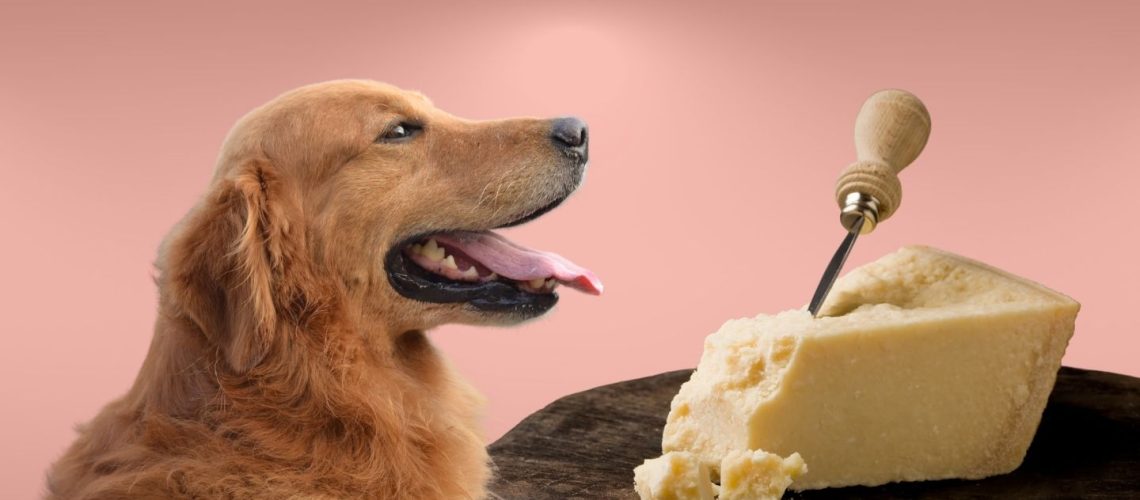Can dogs eat parmesan cheese? The short answer is yes, dogs can eat parmesan cheese in moderation. However, it is important to keep in mind that cheese, like all treats, should be given to dogs in moderation and as part of a balanced diet. In addition, it is important to consider the potential risks and drawbacks associated with giving parmesan cheese to dogs.
What is parmesan cheese?
Parmesan cheese is a hard, dry cheese that originated from Italy. It is made from cow's milk and is typically grated or shredded over pasta, salads, soups, and other dishes for added flavor. Parmesan cheese is known for its strong, savory taste and high nutritional value, which may make it an appealing treat for dogs.
Why is it important to know what foods are safe for dogs?
Dogs have different nutritional needs and tolerances than humans, and some human foods can be toxic to dogs. It's important to be aware of what foods are safe for your furry friend to ensure their health and well-being.
Nutritional value of parmesan cheese
Protein content
Parmesan cheese is a good source of protein, an essential nutrient for dogs that helps support body growth, maintenance, and repair.
Calcium content
This cheese is also rich in calcium, a mineral necessary for strong bones and teeth, and proper nerve and muscle function in dogs.
Fat content
Parmesan cheese has a high-fat content, which can provide an energy source for dogs and contribute to a satisfying treat.
Vitamin and mineral content
Parmesan cheese also contains small amounts of various vitamins and minerals such as vitamins A, B2, and B12, and minerals like phosphorus, magnesium, and zinc.
Benefits of parmesan cheese for dogs
Strong bones and muscles
The calcium and protein in parmesan cheese can help support strong bones and muscles in dogs.
Satiety and enjoyment
The high-fat content in parmesan cheese can make it a satisfying and tasty treat for dogs.
Potential dental benefits
Some experts believe that the firm texture of hard cheeses like parmesan may help to remove plaque and tartar buildup on a dog's teeth.
Risks and drawbacks of giving parmesan cheese to dogs
High fat and calorie content
Weight gain and obesity
Due to its high-fat content, giving dogs too much parmesan cheese can lead to weight gain and obesity, especially if given in large amounts or frequently.
Pancreatitis
Excessive fat intake can also put dogs at risk of pancreatitis, an inflammation of the pancreas that can be life-threatening.
Lactose intolerance
Some dogs are lactose intolerant and may experience gastrointestinal upset, such as diarrhea and vomiting, when given dairy products like parmesan cheese.
Symptoms of lactose intolerance in dogs
If your dog is lactose intolerant, they may experience bloating, gas, diarrhea, and vomiting after consuming parmesan cheese.
How to identify lactose intolerance in your dog
Speak to your veterinarian if you suspect your dog may be lactose intolerant. They can provide guidance on identifying and managing this condition.
Salt content
Parmesan cheese can be quite salty, and excessive salt intake can lead to health issues in dogs, such as high blood pressure, kidney damage, or electrolyte imbalances.
Effects of high sodium intake in dogs
Symptoms of excessive sodium intake in dogs include vomiting, diarrhea, loss of appetite, lethargy, and in severe cases, seizures.
How to avoid excessive salt intake
Feed your dog a balanced diet, limit salty treats like parmesan cheese, and consult your veterinarian to ensure your dog's sodium intake is appropriate.
Alternatives to parmesan cheese for dogs
Low-lactose cheese options
Consider feeding your dog low-lactose cheese options like cheddar, Swiss, or mozzarella, which may be easier for them to digest.
Other dog-friendly treats
You could also offer your dog other types of dog-friendly snacks, such as fruits, vegetables, or lean meats, as part of a balanced diet.
Proper portion size for dogs
Calculating daily calorie intake for your dog
To maintain a balanced diet, treats should not make up more than 10% of your dog's daily calorie intake. Consult with your veterinarian to determine the appropriate daily calorie amount for your dog.
Determining the appropriate treat amount
If your dog is on a 1,000-calorie-per-day diet, no more than 100 calories should come from treats like parmesan cheese.
Monitoring your dog's weight and overall health
Keep an eye on your dog's weight and overall health, adjusting their diet and exercise as needed to maintain a healthy lifestyle.
Tips for giving parmesan cheese to dogs
Purchase high-quality, unprocessed parmesan cheese
Look for pure, unprocessed parmesan cheese without added salts or chemicals that could be harmful to dogs.
Grate or shred parmesan cheese for easier consumption
Grating or shredding parmesan cheese can make it easier for your dog to eat and digest.
Mix parmesan cheese with other dog-friendly foods
To provide variety, consider mixing your dog's parmesan cheese treat with other dog-friendly foods like lean meats or vegetables.
Conclusion
Dogs can eat parmesan cheese in moderation, but it is essential to be aware of the potential risks and drawbacks. Ensure that it is given in appropriate portion sizes and as part of a balanced diet. Consult your veterinarian for personalized advice on your dog's nutritional needs and any concerns about lactose intolerance or other health issues.











